Sharon Olds’s “The Language of the Brag” and Bernadette Mayer’s “The Desires of Mothers to Please Others in Letters” are exuberant, boisterous tributes to motherhood. Both poets join host Elisa New, actor Donna Lynne Champlin, writer Emily Oster, activist Ayaan Hirsi Ali, obstetrician Lorna Wilkerson, and co-founders of Our Bodies Ourselves to explore the miracle, and mess, of creating new life.
Interested in learning more? Poetry in America offers a wide range of courses, all dedicated to bringing poetry into classrooms and living rooms around the world.
by Sharon Olds and Bernadette Mayer
The Language of the Brag
by Sharon Olds
I have wanted excellence in the knife-throw,
I have wanted to use my exceptionally strong and accurate arms
and my straight posture and quick electric muscles
to achieve something at the center of a crowd,
the blade piercing the bark deep,
the haft slowly and heavily vibrating like the cock.
I have wanted some epic use for my excellent body,
some heroism, some American achievement
beyond the ordinary for my extraordinary self,
magnetic and tensile, I have stood by the sandlot
and watched the boys play.
I have wanted courage, I have thought about fire
and the crossing of waterfalls, I have dragged around
my belly big with cowardice and safety,
stool charcoal from the iron pills,
huge breasts leaking colostrum,
legs swelling, hands swelling,
face swelling and reddening, hair
falling out, inner sex
stabbed and stabbed again with pain like a knife.
I have lain down.
I have lain down and sweated and shaken
and passed blood and shit and water and
slowly alone in the center of a circle I have
passed the new person out
and they have lifted the new person free of the act
and wiped the new person free of that
language of blood like praise all over the body.
I have done what you wanted to do, Walt Whitman,
Allen Ginsberg, I have done this thing,
I and the other women this exceptional
act with the exceptional heroic body,
this giving birth, this glistening verb,
and I am putting my proud American boast
right here with the others.
CREDIT: ”The Language of the Brag” from Satan Says by Sharon Olds, © 1980. Aired by permission of University of Pittsburgh Press.
From The Desires Of Mothers To Please Others in Letters
Public Lice
p.23
I only worry all the time, I worry about my cervix, I worry about my uterus, my ovaries, my pleasant vagina
I must admit the next time this happens to me I’m going to freak out,
Under My Green Jacket
p.58
… the way I knew I was pregnant was it wasn’t fun to get drunk anymore,
The Well of Loneliness
p.64
… the thing I resent most is when someone says you won’t have time to write if you have a family.
Eine Kleine Nacht Musik
p.70
Now that I’m a mother my chances are better for sainthood they say,
The Notch at the Flume of the Gorge
p.147
I did wish to be a man, it was better to be one. Imagine knowing you could not bear children but could conceive them and they were your own still. What fun! I’d go around conceiving them every chance I got.
Visions or Desolation
p.238
I wish I could try it as a man for once and be the one watching nervously instead of the inhabitant of this always female body,
p.239
… when the baby is finally born you don’t know for a moment if you’re thinking of yourself or the other,
Portrait of a Man Holding a Glove
p.253
… my mother said I ought to want to have children but she also said you ought not to do any [screwing] fucking and she said it was sex and her children that caused her disease,
Accidental On
p.270
IT FINALLY GETS AROUND to the fact there isn’t any special breathing you do in labor like duck á l’orange …, it’s labor and you generally pant the midwife said, she said a woman who’d been to some fancy classes wound up saying “out” for fourteen hours, the mantra out.
The Physiology of Taste
p.287
I can’t pretend to be able to account for how anybody else feels when a baby is born, but there is the baby … fraught with the tenderness of the state of the womb, visible and unclothed in the light, about to be wrapped and nursed, there is nothing else like it.
p.288
… the baby is a person and it is outside of you and it does turn out to be he or she … and it will be called that, Max or Violet or Joe and not just “the baby”…
SHAKING THE SHEET
p.311
It seems like I’ve been in labor now three or four weeks, last night I had contractions for five hours winding up with the best one at 2 am,
TEN YEARS TILL THE NEXT BEER
p.312
At least nobody can be saying about giving birth, don’t take it so seriously
The Language of the Brag
by Sharon Olds
I have wanted excellence in the knife-throw,
I have wanted to use my exceptionally strong and accurate arms
and my straight posture and quick electric muscles
to achieve something at the center of a crowd,
the blade piercing the bark deep,
the haft slowly and heavily vibrating like the cock.
I have wanted some epic use for my excellent body,
some heroism, some American achievement
beyond the ordinary for my extraordinary self,
magnetic and tensile, I have stood by the sandlot
and watched the boys play.
I have wanted courage, I have thought about fire
and the crossing of waterfalls, I have dragged around
my belly big with cowardice and safety,
stool charcoal from the iron pills,
huge breasts leaking colostrum,
legs swelling, hands swelling,
face swelling and reddening, hair
falling out, inner sex
stabbed and stabbed again with pain like a knife.
I have lain down.
I have lain down and sweated and shaken
and passed blood and shit and water and
slowly alone in the center of a circle I have
passed the new person out
and they have lifted the new person free of the act
and wiped the new person free of that
language of blood like praise all over the body.
I have done what you wanted to do, Walt Whitman,
Allen Ginsberg, I have done this thing,
I and the other women this exceptional
act with the exceptional heroic body,
this giving birth, this glistening verb,
and I am putting my proud American boast
right here with the others.
CREDIT: ”The Language of the Brag” from Satan Says by Sharon Olds, © 1980. Aired by permission of University of Pittsburgh Press.
From The Desires Of Mothers To Please Others in Letters
Public Lice
p.23
I only worry all the time, I worry about my cervix, I worry about my uterus, my ovaries, my pleasant vagina
I must admit the next time this happens to me I’m going to freak out,
Under My Green Jacket
p.58
… the way I knew I was pregnant was it wasn’t fun to get drunk anymore,
The Well of Loneliness
p.64
… the thing I resent most is when someone says you won’t have time to write if you have a family.
Eine Kleine Nacht Musik
p.70
Now that I’m a mother my chances are better for sainthood they say,
The Notch at the Flume of the Gorge
p.147
I did wish to be a man, it was better to be one. Imagine knowing you could not bear children but could conceive them and they were your own still. What fun! I’d go around conceiving them every chance I got.
Visions or Desolation
p.238
I wish I could try it as a man for once and be the one watching nervously instead of the inhabitant of this always female body,
p.239
… when the baby is finally born you don’t know for a moment if you’re thinking of yourself or the other,
Portrait of a Man Holding a Glove
p.253
… my mother said I ought to want to have children but she also said you ought not to do any [screwing] fucking and she said it was sex and her children that caused her disease,
Accidental On
p.270
IT FINALLY GETS AROUND to the fact there isn’t any special breathing you do in labor like duck á l’orange …, it’s labor and you generally pant the midwife said, she said a woman who’d been to some fancy classes wound up saying “out” for fourteen hours, the mantra out.
The Physiology of Taste
p.287
I can’t pretend to be able to account for how anybody else feels when a baby is born, but there is the baby … fraught with the tenderness of the state of the womb, visible and unclothed in the light, about to be wrapped and nursed, there is nothing else like it.
p.288
… the baby is a person and it is outside of you and it does turn out to be he or she … and it will be called that, Max or Violet or Joe and not just “the baby”…
SHAKING THE SHEET
p.311
It seems like I’ve been in labor now three or four weeks, last night I had contractions for five hours winding up with the best one at 2 am,
TEN YEARS TILL THE NEXT BEER
p.312
At least nobody can be saying about giving birth, don’t take it so seriously
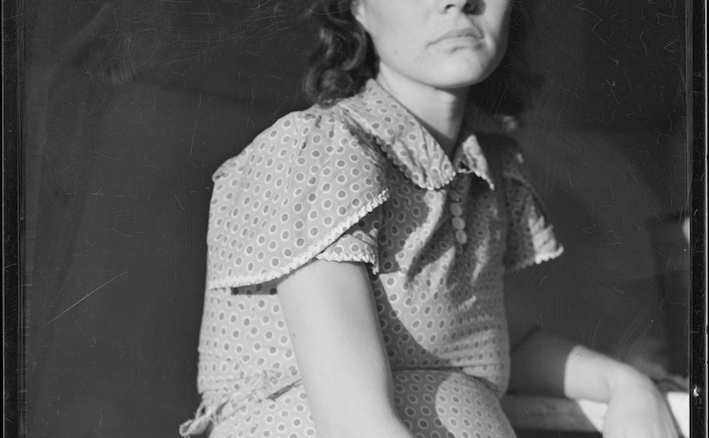
"Women were drugged. They were given scopolamine. They were having hallucinations and they were coming out of these experiences completely disempowered. So it was wonderful to see an emerging group of women saying: we're going to reclaim that important act that we as women can perform." - Judy Norsigian, Co-founder Our Bodies Ourselves. Courtesy of Library of Congress.
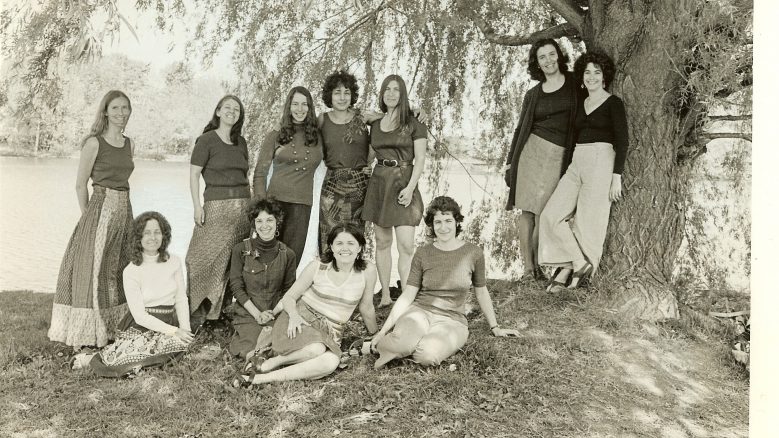
The women's movements of the 1970s agitated, among many other things, for the freedom to speak candidly about women's health and sexuality. The work of collectives like Our Bodies Ourselves—whose revolutionary book "Our Bodies, Ourselves," first commercially published in 1973, brought these dialogues into public discourse—changed how and when we talk about sex and childbirth. Courtesy of Our Bodies Ourselves.
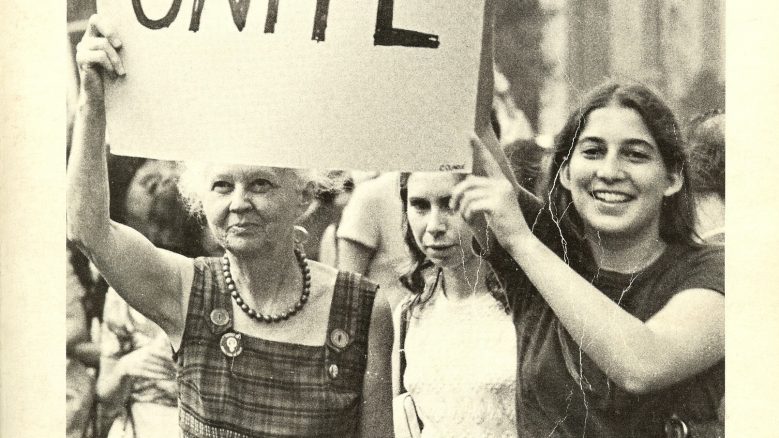
Obstetrician-gynecologist Dr. Lorna Wilkerson recalls first encountering "Our Bodies, Ourselves": "I still remember walking into the bookstore at NYU and picking up that book for the first time, I think I sat there for an hour reading it with my mouth open. I had never seen anything like it. We had it under our arm like it was our show of being free." Courtesy of Our Bodies Ourselves.
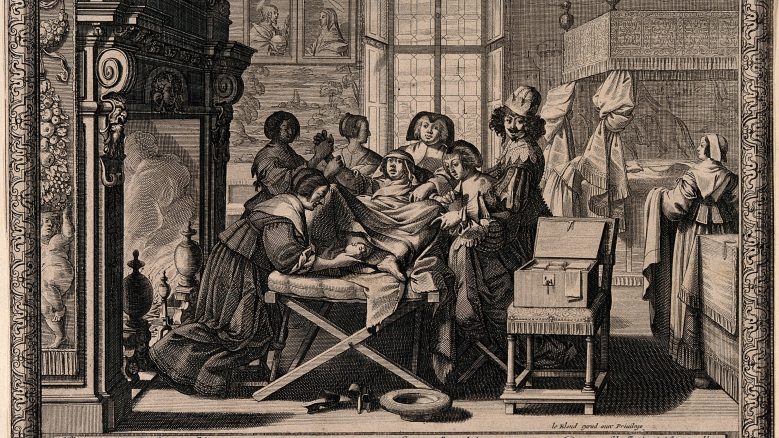
Economist and author Emily Oster considers the ways that the birth experience can bring people together: "I like the community aspect of this. I think it hearkens back in some ways to an older way of giving birth." Courtesy of the Wellcome Collection.
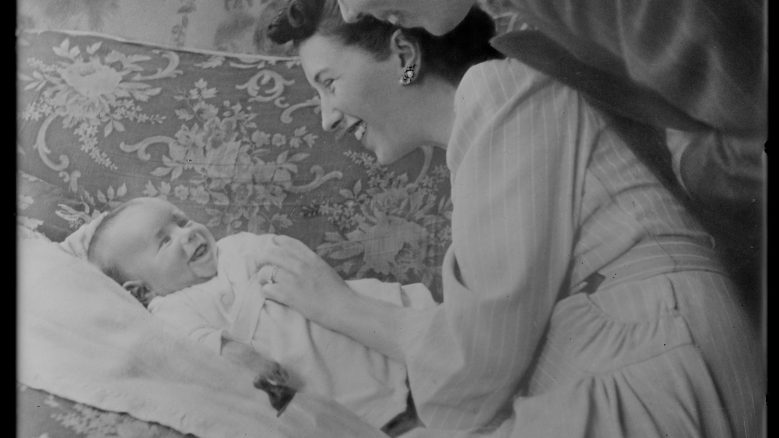
"The poem talks about pregnancy not as the glamorous sort of, you go to the movies and there's a little glow and there's a smile, and then you have a pillow—and then you have a baby." - Obstetrician-gynecologist Dr. Lorna Wilkerson. Courtesy of Boston Public Library.
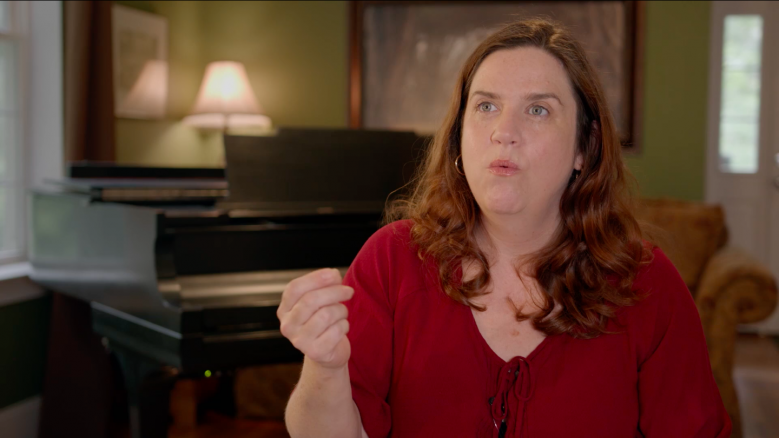
The generational differences in the experience of pregancy are striking. Recalls actor Donna Lynne Champlin, "My mother just had this like "Leave It to Beaver" sheen on her own memory of being pregnant. She's like, "I loved being pregnant. It was the best time" and blah, blah, blah. I had a difficult pregnancy and I kept going to her and being like, this is hard. This is really hard."
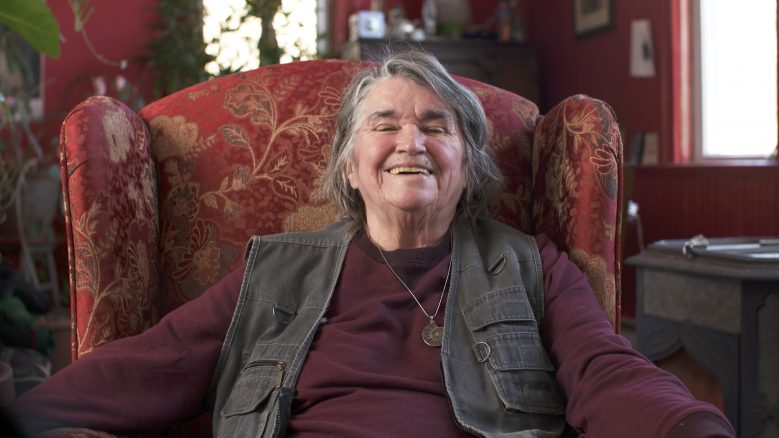
Together with, and very much a part of, the womens' movements of the 1970s, a new generation of women poets began to write on themes of sexuality, pregnancy, and childbirth—themes previously taboo in American public discourse. Poet Bernadette Mayer's "The Desires of Mothers to Please Others in Letters" from its very title questions the historical division of labor that honors male writing as work while consigning women's subjects to the domain of the personal.
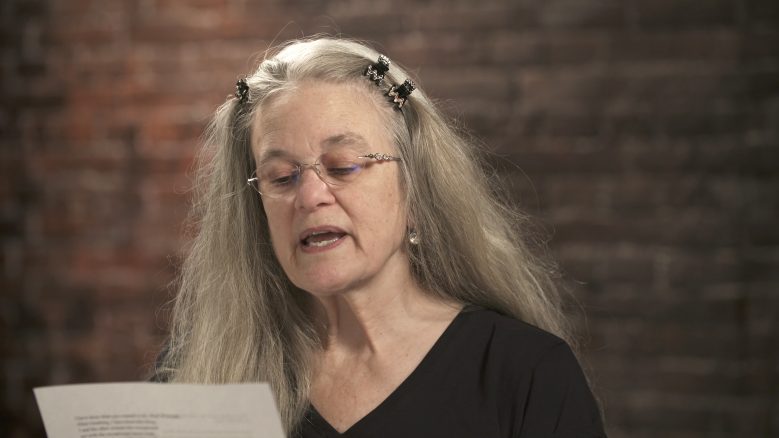
Sharon Olds' poem "The Language of the Brag," from her 1980 collection Satan Says, is a swaggering feminist manifesto, drawing on the very language of male swagger—the titular "brag"—in order to argue for the value not only of women's writing, but of the historically devalued work of childbirth.